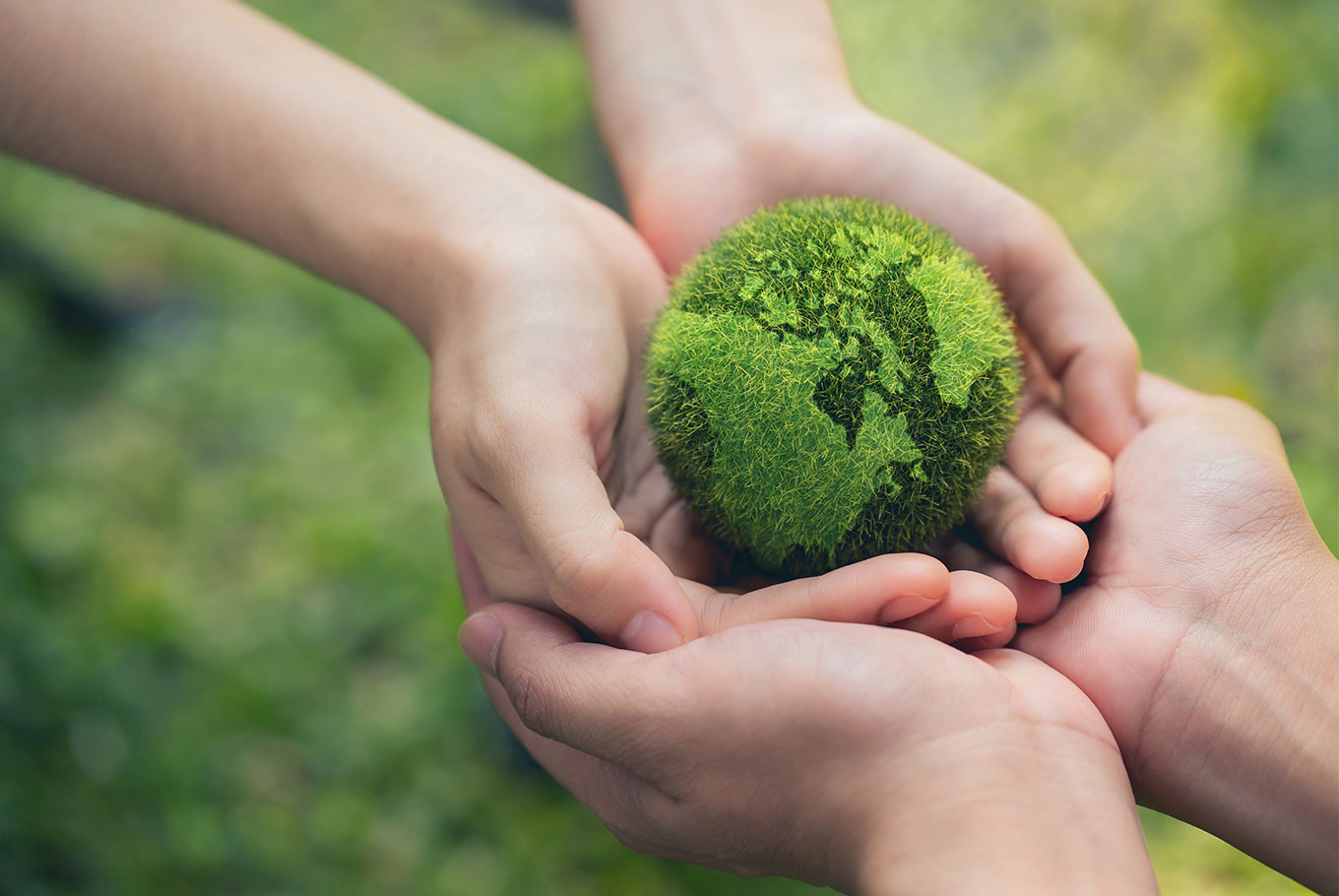Responsibility
Our responsibility Our commitment
Responsibility
More than empty words.

Sustainable development in tourism, PR and media work are intrinsically inter-linked. Only by acting accordingly ourselves can we claim the legitimacy to advocate for sustainable development in tourism.
Read below how we assume our responsibility and the priorities we pursue specifically as an agency.
Travel is one of society’s most popular leisure activities, and therefore one of the most important sectors of the economy. In addition to the economic impact, tourism makes a key contribution to intercultural exchange, which in turn enhances acceptance and tolerance in societies.
But tourism also has its downside. 5 to 8 percent of global emissions can be attributed to the tourism industry. Mobility – especially air, cruise and car travel – is strongly involved. Accordingly, the Global Sustainable Tourism Council (GSTC), wants to see sustainable development in tourism aimed at minimizing negative environmental, social and economic impacts while at the same time maximizing positive performance.
By using effective communication strategies, we as experts in communication and media work can help to shed more light on ecological, social, economic and cultural achievements. And also by networking partners to raise awareness and sensitivity among our stakeholders for responsible travel.
Our commitment
At PrimCom we align our thinking and actions with the United Nations 2030 Agenda and its 17 Sustainable Development Goals (or SDGs for short). These 17 development goals represent guidelines for the sustainable development of our planet by 2030. They are addressed to all states, politicians, organizations, companies and peoples. In accordance with the SDG Compass (a recognized strategic management tool for organizations developed by the Global Reporting Initiative), as well as the UN Global Compact initiativa and the World Business Council for Sustainable Development, we prioritize the following four key SDGs for the period 2022-2026 :
One of the most pressing challenges in tourism is effective climate protection. We calculated a Corporate Carbon Footprint (CCF; Scopes 1, 2, 3) for our company for the first time in 2019. As expected, mobility with fossil fuels is one of the main causes with 22.5 tons of CO2-eq per year (out of an overall total of 35.9 tons of CO2-eq per year). As part of our core business and work as a PR agency for the tourism industry, our employees travel extensively for our clients. We pay particular attention to this core business area by constantly analysing, reflecting on, and adapting to new circumstances (according to the mobility pyramid) and by monitoring our types of travel.
This is what we do:
- Whenever possible, we avoid flights. Otherwise, we choose direct flights if possible. If a flight cannot be avoided, we offset 100% of the emissions.
- Whenever possible, we use public transport.
- For media trips, we clearly indicate the carbon footprint of the arrival and departure to our clients and journalists.
- During media trips and events, we encourage our clients to focus increasingly on vegetarian food.
- Through efficient and smart communication strategies, we reduce electricity and paper consumption.
Worldwide, one in ten jobs depends directly or indirectly on tourism (WTTC, 2018). As employers, tourism companies can contribute to social and economic sustainability without losing sight of their economic goals.
The primary issues are fair working conditions and fair wages for all, protection for children and women, and education for future opportunities. We want to help ensure that not only legal labour standards are adhered to, but that the well-being and health of our employees are the focus.
This is what we do:
- We actively promote the compatibility of work and family.
- We provide transparent information and promote an open and direct communication culture.
- We motivate our employees to find new tourism business areas and to become involved in them.
- We motivate our employees to exploit their own potential.
The world of tourism is multifaceted, multicoloured and diverse. It thrives on contrasts, be it in relation to landscape, culture, society or politics. Nevertheless, it is important to establish equality when it comes to the rights of minorities or the reduction of discrimination in all its forms. We are therefore committed to empowering all people to self-determination and promoting their social, economic and political inclusion.
This is what we do:
- When selecting our clients and partners, we pay attention to a corporate culture that corresponds to our values and principles of responsibility.
- We encourage opportunities and fair working conditions for everyone.
- We specifically give a voice to organizations that support people with disabilities.
- We network stakeholders to promote social achievement in the industry.
- We donate annually to one or more social projects selected together as a team.
Today, knowledge is becoming outdated faster than ever. This applies to all areas of the economy – and therefore to the tourism industry. Particularly in the field of tourism communication, education and lifelong learning are a central key to improving the living conditions of individuals and ensuring security and trust in democratic societies.
This is what we do:
- We constantly monitor developments in tourism and are committed to constantly increasing and passing on our own knowledge – for example to the IST University of Tourism in Zurich.
- We create an environment for our employees that supports further training, creativity, innovation and sustainability.
- We encourage our clients to promote this cause in destinations where for many access to education is either very difficult or even impossible.
- At least one of our donation recipients is an organization committed to ensuring access to education for all.
Sustainability team
Coordination: Petra Wittmann
p.wittmann@primcom.com
T: +41 44 421 41 39